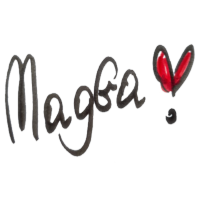Praca z dziećmi, której doświadczyłam przez kilka lat, była dla mnie niezwykle inspirującym doświadczeniem. Dzieci to kreatywność, nieprzewidywalność i wyobraźnia w pełnym wydaniu.
The bell rings. The noise calms down and fifteen suntanned 11-year-olds enter the classroom. The holiday’s just finished and they still have sparkles in their eyes. So eager and willing to learn. We haven’t seen one another for two months and I’m very curious how they spent their holiday. What catches my attention immediately is … the silence. Wow…what happened to them? Have they already matured?
The peace and quiet is very promising and we get down to work the very moment they sit down and unpack their books and notebooks. They look so sweet and lovely that I literally can’t stop smiling in my heart. I really missed them. Their questions, comments and suggestions. Despite being only 10 and 11 year old they’re very open-minded and inquisitive. So …the new school year has already started. Not only for them. For me, too.
After a short warm-up and a brief holiday recap we started a regular class. The Past Simple Tense … grrr… who needs irregular verbs to talk about the past. Or who cares about the fact that some words have wrong forms or don’t sound at all. I spended two weeks in Croatia and we have such a lovely time there, me and my parents. I repeat the wrong bits and pieces with a stronger questioning intonation and what I see is a funny face followed by an obvious comment: Is it wrong? You all know where I was and how long. Did I make a mistakes? I smiled and let others react. Correct replies pop up from various corners of the classroom. And the poor student corrects himself quickly. Uffff… no offence taken. He carries on quite fluently. Nothing much hinders his overall communication. Similar patterns reapear as others describe things they did and places they were to during their two-months off school. …I goed, we swimmed, they catched a virus etc… Oh no….what happened to their past simple forms of irregular verbs, I think, — they all knew the forms before holidays.
I give up quickly and don’t even bother about correcting anybody. Pointless. They’re all so excited and participate eagerly. Why should I bother to stop them all the time when they want to talk. Instead, I keep noting down the verbs and their correct forms on the whiteboard. I hope to visualise the correct forms so that others could avoid making the same mistakes. Few last students produce flawless descriptions of their holidays… uuuufff…and I’m relieved.
Few other funny mistakes occured during just the very next lesson. In English the verb ASK means both 1/ to pose a question (zapytać) and to 2/ gently talk to somebody to make him or her do something for you. (poprosić)
eg. 1/ Detective White asked him many questions. 2/ Detective White asked Mr Brown to show him the broken clock.
In Polish the English verb ASK has only one meaning i.e. to question (zapytać). The majority of Polish learners overuse the English word please in the context of to ask gently for something and they end up withsentences like e.g. Detective White pleased Mr Brown to show him the broken clock. And this is exactly what happened to one of the girls when she tried to retell a story of a missing clock and a thief, that we were just reading during the class. She was very intuitive in choosing this word and to my surprise everybody understood what she meant. Please means prosić in Polish and she used it very intuitively, and what is more….she didn’t forget to make it past simple form and added -ed ending.
GULL project made me more open and reflective to what’s going on in my classroom and since I joined it, I take real pleasure in noting down some of the phrases, words and spelling mistakes I hear or see in my classroom.
And this is only the beginning of the school year. So much more to come 🙂

